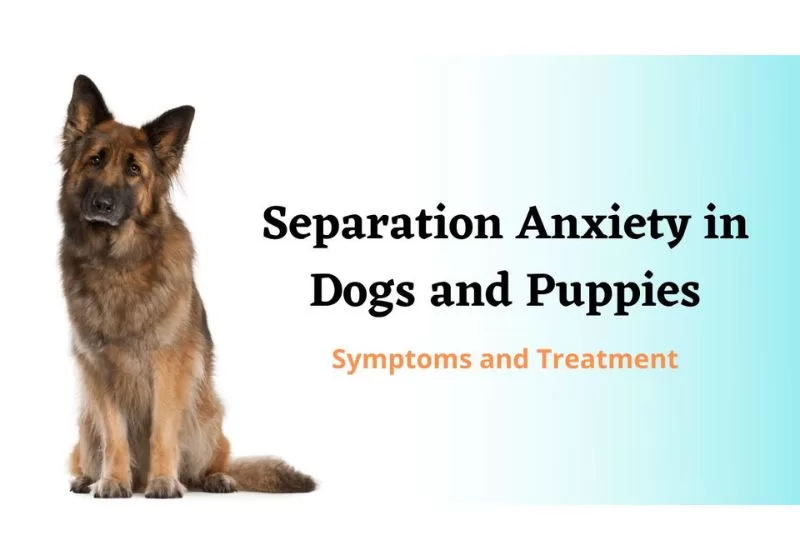German Shepherd Separation Anxiety is very common, especially among puppies, and it is evident that it is again seen mostly in older dogs due to fear and also due to excess separation time.
Table of Contents
Dogs with separation anxiety exhibit behavioral problems when alone. Typically, they have a dramatic anxiety response in the shortest time (20-45 minutes) after their owners leave them.
Dogs love spending time with their owners and protecting them from threats especially German Shepherds as they are very loyal and protective towards their owners. However, a German Shepherd can become weak and show signs of aggressive and bad behavior when they are alone.
German Shepherd Separation Anxiety Symptoms
Destructive Chewing
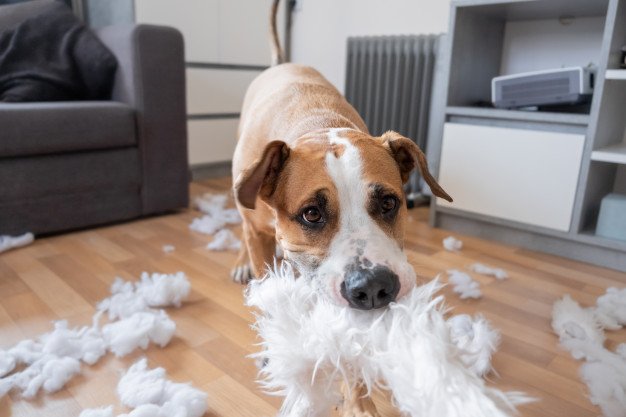
To ease the stress of separation anxiety dogs usually chew more and more, when they are alone or when they are left alone unattended for more time. Chewing is also common among puppies during teething but we need to identify the difference between normal chewing and destructive chewing.
Vigorous Barking and Howling
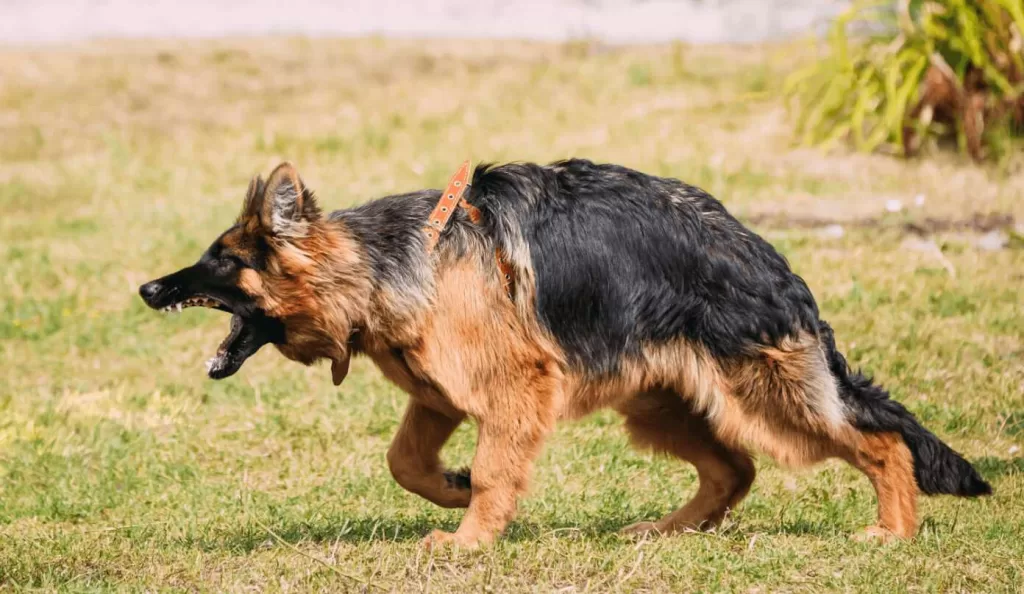
Of all German shepherd separation anxiety behavior problems, Dog barking and Howling can be very distressing when left alone. A dog with separation anxiety may bark vigorously or cry when he is alone or separated from his guardian. This type of barking or screaming is persistent and cannot be triggered by anything other than being alone.
Few good reads you may like
- German Shepherd Dog Common Health Issues and Problems
- German Shepherd Dog: One of the Easiest Dog Breed to Train
- Coronavirus or COVID 19 in German Shepherd Dogs
- At What Age do German Shepherds Baby Teeth fall out? Complete Teeth Care
- White German shepherd from Puppy to Pal: The Complete Guide.
Urinating and defecating.
“Dogs that are exhibiting an increase in anxiety may begin to potty inside the home.”
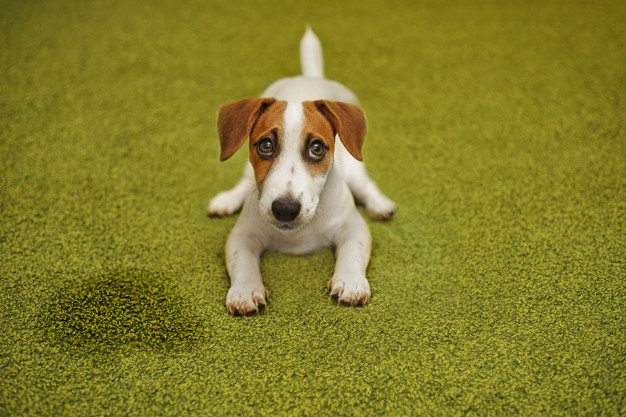
Dogs that exhibit an increase in separation anxiety may begin to be eliminating inside the home, primarily due to loss of control and anxiety about the owner. Dogs who exhibit separation anxiety may give the home soil and require an intensive retraining program.
Escaping Nature
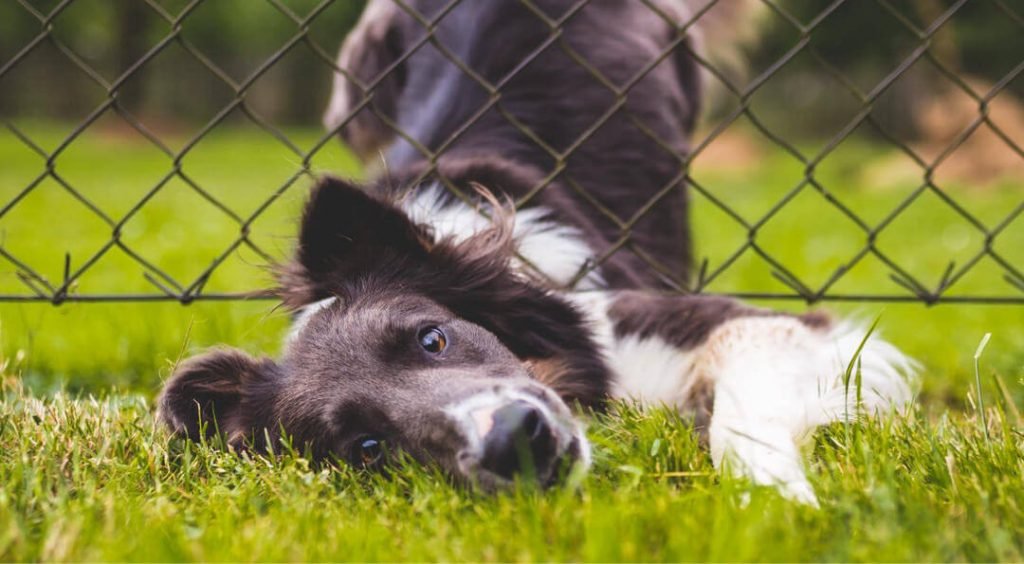
A dog with separation anxiety may try to escape the detention area when he is alone or separated from his guardian. The dog may try to dig in and chew through doors or windows, causing self-injury such as broken teeth, cuts, front feet, and damaged nails. If the dog’s escape behavior is caused by separation anxiety, it does not occur when he is with his guardian or owner.
Eating their excrement
Dogs will sometimes eat their own stool to relieve stress. This usually only occurs when the dog is extremely anxious and felt nervous.
Different dogs have different concerns, fears, and stress triggers, which can lead to constipation. For example, dogs with extreme separation anxiety may relieve and then eat their own stool when alone.
Keep an eye on Puppy
Not every time it is about separation anxiety, Puppies or small dogs can eat poop with curiosity. Everything is new to the puppy, so he may want to explore and manipulate everything he sees with his mouth, including animal points. It is advisable to train the puppy to avoid eating feces.
Pacing
Some dogs walk or roam a certain path in a particular way when they are alone or separated from their guardians. Some pacing dogs rotate with circular patterns, while others run back and forth in straight lines. The dog’s pacing behavior is caused generally by separation anxiety, it usually does not occur when he is with his owner.
Treating Separation Anxiety in Dogs
The key to a successful separation anxiety in dogs prevention program is to give sufficient time for your dog. When you bring a new dog or puppy home, run a program to help him stay isolated for some restricted time like 20 minutes initially. It helps to reassure him that he is not afraid: you have not left him; you always come back. Exercise him well before you practice.
A tired dog is a better dog for leisure than “overflowing”.
Here are steps to create a comfortable dog that can be left alone. You have to work very slowly through the steps of getting him out of separation anxiety.
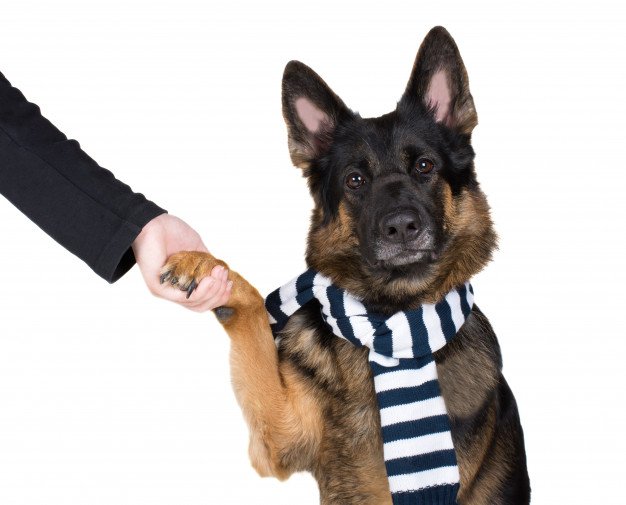
- Bring your dog home when someone can spend a few days with him to ease the stress of the transition.
- Prepare a quiet, safe place in advance, such as a playpen or a puppy pen, or a dog-proofed room.
- When you bring your dog home, give him a chance to relieve himself outdoors and spend 10 to 15 minutes with him under close supervision at home. Then put it in his pen and stay in the room with him.
- Give short breaks, like stay with him for 30 minutes go away for 10 minutes, and come back and make sure your voice is audible to your puppy in the first phase of this.
- Continue to stay away from time to time, gradually increasing the distance and changing the time you are away so that you will eventually move around the room without disturbing your dog. Every time you come back, greet him calmly. Every time “Yes!” Before you return to him in a calm but cheerful tone, then go back to the pen and give him a treat.
“Avoid saying goodbye since this will only bring attention to the departure.”
- Repeat the same process until he is comfortable and completely believes that you will come back in a short time and give him a treat. Have some play toys in his crate and you can leave him for a while.
Get in touch with the Pet camera
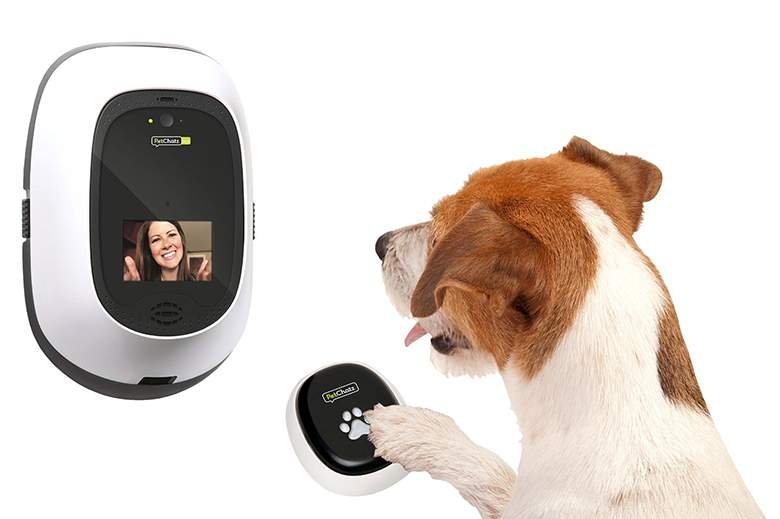
- FULL HD CAMERA & NIGHT VISION - The Furbo Dog Camera gives...
- 2-WAY AUDIO - Know what’s going on at home and talk to...
- FUN TREAT TOSSING - Toss a treat to your dog through your...
- BARKING SENSOR ALERT - Furbo’s unique BARKING SENSOR...
Pet cameras, give you the opportunity to keep tabs on your pet and communicate with them remotely when you’re not at home. Listening to your voice through a speaker can help calm your dog, and excellent features such as a treat-dispensing or laser toy will keep your puppy engaged and energized.
Finding the right solution to separation anxiety in dogs is a lengthy process. While some of the techniques and tricks mentioned in this article may make the process a little easier, it takes a lot of patience and effort to reduce your pet’s stress. But, in the end, it is definitely worth the effort to help your puppy become relaxed, and happy even when you are not with him!
Separation anxiety in old dogs
Some common concerns reported by elderly dog owners include increased tenderness and irritability, fear of unknown pets and individuals (sometimes accompanied by aggression), decreased tolerance of touch and restraint, increased desire for follow-up and contact, and anxiety when alone. Noise sensitivity from hearing impairment can make some dogs more anxious and accented. Your own frustration and distress over your dog’s behavior can increase your dog’s anxiety.

If home soil becomes a problem, some dog owners choose to crate their dogs when they are not at home. Unfortunately, limiting a senior dog to a crate can increase his anxiety level if he has never been in the crate or become accustomed to it. It will make matters worse if he cannot feel comfortable in the crate, or if he cannot control his bowels or bladder, he may become more anxious and try to escape.
This is also common in case of the death of the owner as well. We have to make sure at least 2 persons must be caretakers for a dog at the time.
Separation anxiety in puppies at night
The first thing you notice about your new puppy is that he feels sad or anxious around bedtime. This behavior can be observed if your new puppy sleeps outside your bedroom. Part of the reason for this concern is separation anxiety.
Dogs are exceptionally loyal and loving to the humans in their family, and when those humans go on long enough; the dog can feel anxiety and loneliness.
Make sure at least for 3 to 4 days to try to spend more time with your pet in the night till he sleeps.
Give him a lot of exercises, so that his energy levels come down and feel tired so that he would get back to sleep quickly.
Dog breeds with separation anxiety
There is no special breed of dog in the world that will not have separation anxiety but a few breeds can be adjusted easily and a few breeds take more time for that.
Here are some dog breeds for your understanding
1. German Shepherd Separation anxiety
The German shepherds were intelligent and loyal. These dogs have been bred to fill many different roles. This breeder has given them some problems with their nature. The past few years have seen an unfortunate decline in the removal of these dogs, and they are now one of the most common breeds of anxiety problems.
2. Australian Shepherd
Australian shepherds are raised for livestock farming. Lack of activity during the night may be the trigger of their anxiety. These dogs like to walk around and “work”. Bedtime may provoke anxiety in some puppies.
3. Vizsla
Vizsla is a famous Gundog of Hungary, and they have become accustomed to hunting with their owners. The race seeks a stable relationship. The loss of their best friend for a few hours at night also disturbs the breed.
4. Border Collie
Border collies are smart and powerful dogs. They seek constant stimulation and activity. While humans like our eight-hour sleep, border collies prefer to spend that time productively. This fact causes concern about the isolation of some border collies from their human.
5. Toy Poodle
These small and loving dogs are clearly bred for the sake of longevity, resulting in some children hating the moments they have left alone.
What Makes Separation Anxiety Worse in Dogs?
Do not harm or punish your dog. Anxious behaviors are not the result of disobedience or hatred. Those are pain responses! Your dog can exhibit anxious behaviors when he is alone because he is upset and tries to cope with a lot of stress. If you punish him, he may get more upset and the problem gets worse.
As a dog owner, you want your furry friend to be happy and relaxed when you’re not around. However, some things can make their separation anxiety worse. Here’s what you should watch out for:
- Inconsistency: Dogs thrive on routine. If your daily schedule changes a lot, it can confuse your dog and increase their anxiety. Try to keep a consistent routine for feeding, playtime, and walks.
- Lack of Exercise: Dogs need regular exercise to stay healthy and burn off excess energy. If they don’t get enough exercise, they may become more anxious when you leave.
- Over-Coddling: It’s natural to want to comfort your dog when they’re anxious, but too much attention before you leave or when you return can reinforce their anxiety. Try to stay calm and low-key when leaving and arriving home.
- Isolation: If your dog spends a lot of time alone, they may develop separation anxiety. Try to gradually increase the time they spend alone, so they get used to it.
- Too Much Attention: On the flip side, giving your dog too much attention when you’re home can also be a problem. If your dog is constantly by your side, they may become overly dependent on you.
- New Environments: Moving to a new home or a big change in your dog’s environment can trigger anxiety. Make sure to introduce them to new places and people gradually.
- Previous Trauma: If your dog has had a bad experience while you were away, like being stuck somewhere or hearing loud noises, it can make their anxiety worse. Be aware of past traumas and try to address them.
Remember, every dog is unique, and what triggers separation anxiety can vary from one dog to another. By paying attention to your dog’s behavior and addressing these factors, you can help them feel more secure when you’re not around.
FAQs
Are German Shepherds prone to anxiety?
Yes, German Shepherds have a reputation for being more prone to anxiety than some other dog breeds. Their high intelligence and loyalty can lead to strong bonds with their owners, making them sensitive to separation.
Can German Shepherds handle being left alone?
German Shepherds are generally okay with being left alone, but it depends on their individual temperament and training. Proper socialization, exercise, and gradual alone-time introduction can help them adapt better to solitude.
Do German Shepherds experience sadness when you leave?
German Shepherds can exhibit signs of distress, such as whining or restlessness when their owners leave, but it doesn’t necessarily mean they’re sad. These reactions often stem from their strong attachment and anticipation of their owner’s return.
Do German Shepherds favor one owner?
German Shepherds may form strong bonds with one family member due to their protective nature, but they can also have positive relationships with multiple individuals in the household. Their loyalty and attachment can be distributed among those who care for them.

